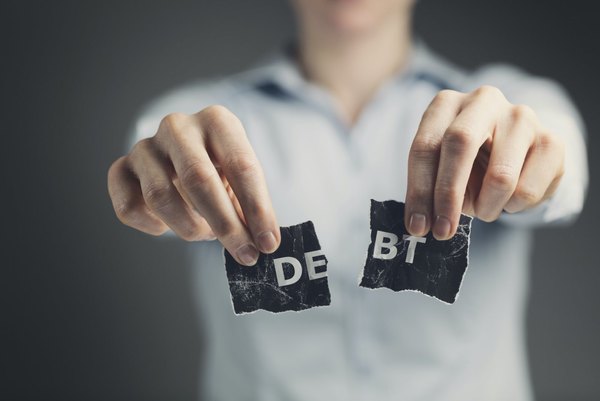Declaring bankruptcy has severe negative consequences, but there are also significant benefits for consumers who can't afford to pay their debts.
When the debts keep piling up, and it seems there's no way out, what do you do? Living with debt that is spiraling out of control is extremely stressful. Yet even in the most extreme cases, there are debt relief options available – including bankruptcy.
Filing for bankruptcy can offer some significant benefits and results if you've truly exhausted all other options. Still, before proceeding down this path, it's also essential to fully understand the consequences of bankruptcy before you file.
You Stand to Lose Assets You Have
There are two main types of personal bankruptcy: Chapter 7 and Chapter 13. In general, when most people think of bankruptcy in this context, they are thinking of Chapter 7.
When you file for Chapter 7 bankruptcy, your debts are either partially or entirely dismissed – after all of your liquid assets have been used to repay whatever debts you owe. These assets include things like checking and savings accounts.
To be eligible to file for Chapter 7, your income cannot be above the median income level for a family of your size in your state. There is also a much greater chance you will lose assets if you file for Chapter 7, but there's a risk with both types of filings.
Trustees will take assets that can be converted to cash relatively quickly; they then use this cash to pay off debts that are discharged in a person's case.
Your Filing May Affect Other People
If you happen to have a loan with a cosigner, such as your mom or uncle, that person will get stuck with your debt if you file for bankruptcy. The debt might go away for you, but your creditor will go after your cosigner to collect the money owed.
Your Case Will Become Public Knowledge
After you file for bankruptcy, your case becomes a public record. It will follow you around for years, and you can't hide it from being discovered by others.
For example, when applying for a loan, credit card, or to rent an apartment or house, it is common to be asked if you've ever filed for bankruptcy – and it will definitely impact your likelihood of being approved.
Your Credit Will Suffer
Probably the most significant consequence of bankruptcy is the effects it will have on your credit. Your filing will cause your score to drop as soon as the bankruptcy court posts that you filed.
This posting will remain on your report for up to 10 years, and it will affect your ability to get new lines of credit, including loans, in the future.
The good news is that you can begin working on your credit shortly after you file, and with the right steps, you can begin to improve your score anew.
The bankruptcy posting may still affect your ability to qualify for loans, but this will not last forever. It's important to know that any debt-relief program you use may impact your credit negatively.
Ultimately, despite all the downsides, bankruptcy has many positive aspects that may be a necessary step to get a fresh start and properly rebuild your finances – especially for those who have sizable debt loads.






